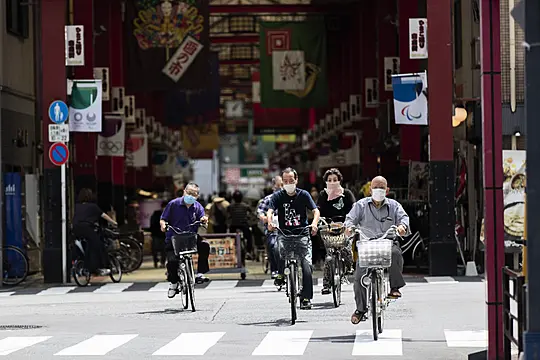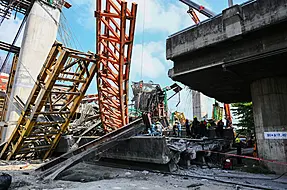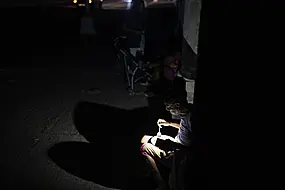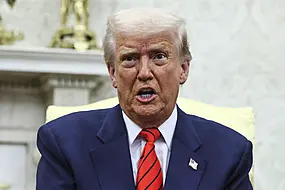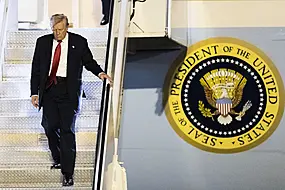New coronavirus cases in Tokyo have surged to a six-month high, amid fears of a possible dramatic rise in infections that could flood hospitals during the Olympics which start in eight days.
Tokyo is under a fourth state of emergency, which began Monday and requires restaurants and bars to close early and not serve alcohol for the duration of the games, which start on July 23.
Thursday’s 1,308 case tally is the highest since 1,485 infections were recorded on January 21, when Japan was under an earlier state of emergency, and is also a jump from Wednesday’s 1,149.

Tokyo governor Yuriko Koike noted that the largest increase in serious cases and hospitalisations was among people aged in their 50s and younger people who were largely unvaccinated.
She expressed concern about the impact on the medical system as infections were propelled by the more contagious Delta strain of the virus.
“We need to stay on alert,” Ms Koike said, urging people to minimise outings and stick to basic anti-infection measures “to overcome this very difficult situation”.
New daily cases have been climbing steadily since mid-June and experts say they could hit several thousand during the games.

Japan’s slow vaccination rollout has improved dramatically since May as the government pushes to improve the inoculation rate before the Olympics, but it is slowing again due to shortages of imported vaccines.
The latest government data shows 19.7% of the population has been fully vaccinated.
Due to the state of emergency in Tokyo and a fear of infections accelerating during the games, organisers last week decided to bar fans for most events, except for limited numbers at outlying locations.
Overall, Japan has had about 828,000 confirmed cases and 15,000 deaths.
Dr Masataka Inokuchi, a medical adviser for a Tokyo metropolitan government panel, said on Thursday that he was worried younger people may celebrate and party because of the Olympics, further accelerating infections.
